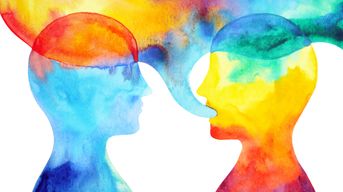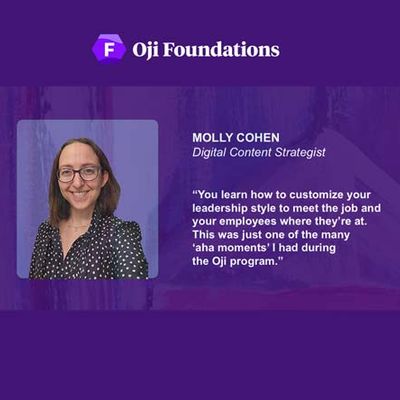How To Listen: A Guide for White People

Though we're already struggling with the challenges of a pandemic, American society is now also experiencing a new urgency around the long-standing crisis of race and inequality. As a white woman, I’ve been grappling with my privilege and what I can do to even the scales. I’ve also been actively listening, and while I am often troubled by what I hear and see, the discomfort I feel is a necessary first step to determining what actions I can take that support a more equitable future for everyone. Robin DiAngelo, author of White Fragility: Why It’s So Hard for White People to Talk About Racism, said in an interview, “When we understand racism as a system that we have been raised in and that its impact is inevitable, it’s really not a question of good or bad. It’s just, ‘I have it. I have been socialized into it.’ And so, ‘What am I going to do about it?’”
Acknowledging race and the structural advantages it has created for white people is critically important to opening dialogues that create the space for new possibilities and lasting change. Cory Collins describes white privilege this way:
“White people become more likely to move through the world with an expectation that their needs be readily met. People of color move through the world knowing their needs are on the margins. Recognizing this means recognizing where gaps exist.” So here is my plea to fellow white Americans: if we are to make substantive and lasting social progress, we need to understand these gaps. And to increase our understanding, we start by simply listening. Nelson Mandela said, “One of the most difficult things is not to change society — but to change yourself.”
Oji Life Lab advisor and leadership expert, Janet Miller Evans, says that “racism IS emotion.” Emotions drive how we think and act. When we experience strongly unpleasant emotions, (like anger or fear), the sympathetic nervous system responds with a cascade of hormones that affect heart rate, blood pressure and breathing. We commonly refer to this as the ‘fight or flight’ response, and if you think back to the last time you felt those changes in your own system, you might have noticed that you were more focused on the stimuli that caused you to feel that way than on listening. Therefore, attending to how we feel can directly improve the quality of our listening ability.
For me, I have to face my uncomfortable feelings in talking about race. A friend recently pointed out that my discomfort points to my privilege. That was a useful reminder for me to manage my own emotional stew so that I can show up as a ready and open listener. For people of color, being heard can be a matter of survival. Beverley Daniel Tatum, in her book, “Why Are All the Black Kids Sitting Together in the Cafeteria?”: A Psychologist Explains the Development of Racial Identity states that, “For many people of color, learning to break the silence is a survival issue. To remain silent would be to disconnect from her own experience, to swallow and internalize her own oppression. The cost of silence is too high.” This is why it is incumbent upon me (and perhaps you too) to prepare to listen.
As you work to improve your listening skills, here are some tips to get you started:
Recognize and name the emotions AS you experience them. When you watch a video like this or read a first person account like this, how do you feel? There is no wrong answer. We like to say at Oji that emotions are information and that acknowledging them is the first step in uncovering their root causes. Judging our feelings – instead of viewing them more objectively – only makes it more difficult to sort out the raw and intense emotions that emerge as we face the realities of racism. So, name as many emotions as you can and list them out. It’s only when we know what we feel (and why we might be feeling that way) that we can begin to determine what action we might want to take as a result.
Notice when you are avoiding certain emotions. Some feelings are quite difficult to experience, and as adults, we’ve learned to skillfully avoid them. This will not help us now - we have to face what we feel to move forward. Answer this question: It’s hard for me to listen when I feel [insert emotion here]. If your answer includes anger, shame, resentment, disgust, despair or guilt, you’re not alone and experiencing them says nothing about your character or morality. It just means that you are human. The problem is that we often shrink away from these emotions or actively work to numb and/or avoid them. To effectively listen, acknowledge the feelings and perhaps sit with them for awhile. Emotions like compassion and sympathy are inextricably linked to sadness and other blue quadrant emotions (see the Corona Care Toolkit for information about emotion “quadrants” and the Mood Meter) and might actually help you become more attuned to the person with whom you are speaking.
Optimize your emotional state for deep listening. Work to shift how you feel to an emotion that is conducive to hearing what others have to say. We often erroneously assume that we have to wait for emotions to have their way with us before we can move on from them. Not true! The framework for shifting from one emotional state to another follows the process below. It seems simple but takes practice to master.
Check in on your emotional state several times a day and complete these statements:
- Right now, I feel: _______
- Feeling this way is helpful to what I'm doing: yes/no
- If the answer is no, answer this: I would like to feel ______ instead.
- To get to the desired emotion, I can [insert a strategy here].
For example:
- Right now, I feel disheartened
- Feeling this way is helpful to what I’m doing: yes/no
- I would like to feel hopeful instead.
- To feel hopeful, I can create a list of people I see who are actively working to make this world a better place.
Quit worrying about saying the wrong thing or asking the wrong question. Focusing on how you’ll be seen and judged by others will hold you back from from having meaningful dialogues. Get out of your own way and make peace with your clumsiness. Undoubtedly, you will stumble through some conversations, but you will know more on the other side of it. And yes, you will say or ask the wrong thing at times. That’s not a reason to stop listening. Your discomfort is a sign that you are having a real dialogue that could change the hearts of all who participate in it.
Listen with curiosity (and not judgement). Curiosity keeps our nervous systems calm and our minds open. Activating curiosity is an effective strategy to more deeply absorb the messages you are hearing from others. So, find ways to ask questions that pique your curiosity. Steven Covey said, ‘Seek first to understand and then to be understood.’ Use this habit as a guidepost and don’t expect the people you are speaking with to sound, think or feel like you do. Our life experiences shape our world view and accepting those differences makes us better listeners.
Current conditions have provided the opportunity to make real and lasting change in our hearts, our communities and the country at large. It starts with listening. As Ray Reagans, PhD., Professor of Organization Studies at the MIT Sloan School of Management says, “We can change the world one interaction at a time.” It won't always be easy, but we've seen the cost of not trying.
I leave you with this unifying message from Larry Fitzgerald.

Latest Posts
BACK TO HOME ❯Sign up for our People-Powered Newsletter.

 Meet our Program Experts
Meet our Program Experts
 Why Oji is Different
Why Oji is Different
 First Impressions of the Oji Foundations Program
First Impressions of the Oji Foundations Program